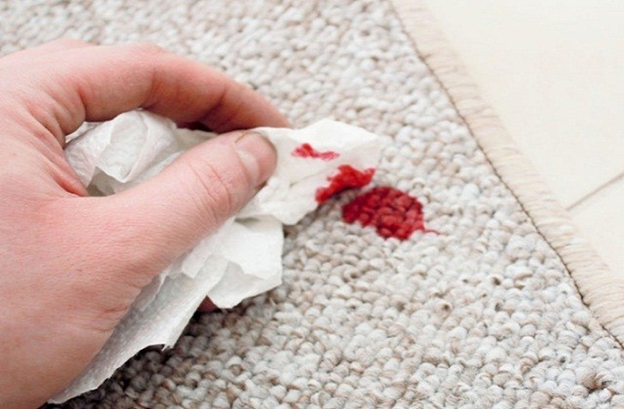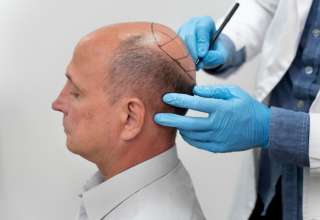The risk of exposure to potentially hazardous blood is a concern for people who work in community-based and youth-focused organizations and should always be dealt with by biohazard cleanup. If a child has a bloody nose or has cut themselves, you might be called on to clean it up. After all, you do not want the general public to be exposed to any bloodborne pathogens.
How To Sanitize A Blood Spill?
Accidents are a way of life and there are times when you cannot avoid them, but you need to know how to sanitize the blood spills that occur from them. This is something that you need to know about because blood is actually one of the most potentially hazardous substances. There are a number of pathogens which are carried in the blood from HIV to Hepatitis B. Knowing the best way to handle the blood spill will ensure that everyone is safe.
The first step will be to determine the size of the spill and whether or not you need to contact a biohazard cleaning service. If you have a manageable spill, your next step will be to get the safety cleaning equipment that you need. You have to protect yourself when you clean the spill and this will include wearing gloves, goggles, boots and an overcoat layer.
Once you have protected yourself, you will need to get the right cleaning materials. They will often come in kits and will help you to contain and remove all traces of the spilled blood. These kits often contain protective equipment along with cleaning and disposal equipment. This will include absorbent pads, leak-proof containers, and disinfectants.
Once you have all these items, you will need to take the steps to clean the spill correctly. As the blood could be on a number of surfaces, you need to look at the different ways to clean the pills. Different surfaces will need different methods to be used.
Non-Carpet Surfaces
Surfaces like wood, metal, vinyl, tile, ceramic and other non-absorbent surfaces will be easier to clean. However, there are still some important steps that you need to know about.
● You will have to restrict access to the area until the spill has been cleaned. This will prevent any unprotected and unsuspecting people from potential exposure.
● You will need to put on your protective equipment.
● You should not add any cleaning products to the blood. Use the absorbent pads or towels to remove as much blood as possible first.
● After this, you will be able to use disinfectants such as bleach to clean the affected area. You should not scrub immediately and let the disinfectant sit for around 20 minutes before removing.
● You need to secure all of the soiled and disposable materials in a garbage bag. Any non-disposable items like mops will need to be soaked in disinfectants and allowed to dry.
● You need to secure the garbage in a second bag before you discard it. Your hands will also need to be thoroughly washed when you are done.
Carpeted Surfaces
Carpets and other porous surfaces will be harder to clean. If you have a spill on these surfaces, you need to put on your protective equipment and then take the following steps.
● Keep the spill contained to ensure that it does not spread to any other areas. You should then spray the affected area with disinfectant. This will be the first of many disinfectant sprays as carpets are able to absorb a lot of liquid.
● You should then use an absorbent rag or towel to soak up the excess fluids. The item should then be rinsed and you have to repeat the process. This should be done at least 3 times. It is important to note that you can use a vacuum with good suction to get the water out of the carpet.
● If the affected area is too large for you to clean on your own, you should call a steam cleaning firm. They will be more prepared and equipped to handle the cleaning of the carpet.
● If you are doing this yourself, you need to ensure that you dispose of all your biowaste correctly.
While no one looks forward to a blood spill, it is handy for you to know how to safely clean it. Sanitizing the blood spill can be a tough situation, but you need to protect yourself correctly when you do this. If the blood spill is too large for you to handle on your own, you should call a biohazard clean up company. They will be better equipped to handle these spills and will ensure that the area is properly disinfected and cleaned.
The risk of exposure to potentially hazardous blood is a concern for people who work in community-based and youth-focused organizations and should always be dealt with by biohazard cleanup. If a child has a bloody nose or has cut themselves, you might be called on to clean it up. After all, you do not want the general public to be exposed to any bloodborne pathogens.
How To Sanitize A Blood Spill?
Accidents are a way of life and there are times when you cannot avoid them, but you need to know how to sanitize the blood spills that occur from them. This is something that you need to know about because blood is actually one of the most potentially hazardous substances. There are a number of pathogens which are carried in the blood from HIV to Hepatitis B. Knowing the best way to handle the blood spill will ensure that everyone is safe.
The first step will be to determine the size of the spill and whether or not you need to contact a biohazard cleaning service. If you have a manageable spill, your next step will be to get the safety cleaning equipment that you need. You have to protect yourself when you clean the spill and this will include wearing gloves, goggles, boots and an overcoat layer.
Once you have protected yourself, you will need to get the right cleaning materials. They will often come in kits and will help you to contain and remove all traces of the spilled blood. These kits often contain protective equipment along with cleaning and disposal equipment. This will include absorbent pads, leak-proof containers, and disinfectants.
Once you have all these items, you will need to take the steps to clean the spill correctly. As the blood could be on a number of surfaces, you need to look at the different ways to clean the pills. Different surfaces will need different methods to be used.
Non-Carpet Surfaces
Surfaces like wood, metal, vinyl, tile, ceramic and other non-absorbent surfaces will be easier to clean. However, there are still some important steps that you need to know about.
- You will have to restrict access to the area until the spill has been cleaned. This will prevent any unprotected and unsuspecting people from potential exposure.
- You will need to put on your protective equipment. You should not add any cleaning products to the blood. Use the absorbent pads or towels to remove as much blood as possible first.
- After this, you will be able to use disinfectants such as bleach to clean the affected area. You should not scrub immediately and let the disinfectant sit for around 20 minutes before removing.
- You need to secure all of the soiled and disposable materials in a garbage bag. Any non-disposable items like mops will need to be soaked in disinfectants and allowed to dry.
- You need to secure the garbage in a second bag before you discard it. Your hands will also need to be thoroughly washed when you are done.
Carpeted Surfaces
Carpets and other porous surfaces will be harder to clean. If you have a spill on these surfaces, you need to put on your protective equipment and then take the following steps.
- Keep the spill contained to ensure that it does not spread to any other areas. You should then spray the affected area with disinfectant. This will be the first of many disinfectant sprays as carpets are able to absorb a lot of liquid.
- You should then use an absorbent rag or towel to soak up the excess fluids. The item should then be rinsed and you have to repeat the process. This should be done at least 3 times. It is important to note that you can use a vacuum with good suction to get the water out of the carpet.
- If the affected area is too large for you to clean on your own, you should call a steam cleaning firm. They will be more prepared and equipped to handle the cleaning of the carpet.
- If you are doing this yourself, you need to ensure that you dispose of all your biowaste correctly.
While no one looks forward to a blood spill, it is handy for you to know how to safely clean it. Sanitizing the blood spill can be a tough situation, but you need to protect yourself correctly when you do this. If the blood spill is too large for you to handle on your own, you should call a biohazard clean up company. They will be better equipped to handle these spills and will ensure that the area is properly disinfected and cleaned.












